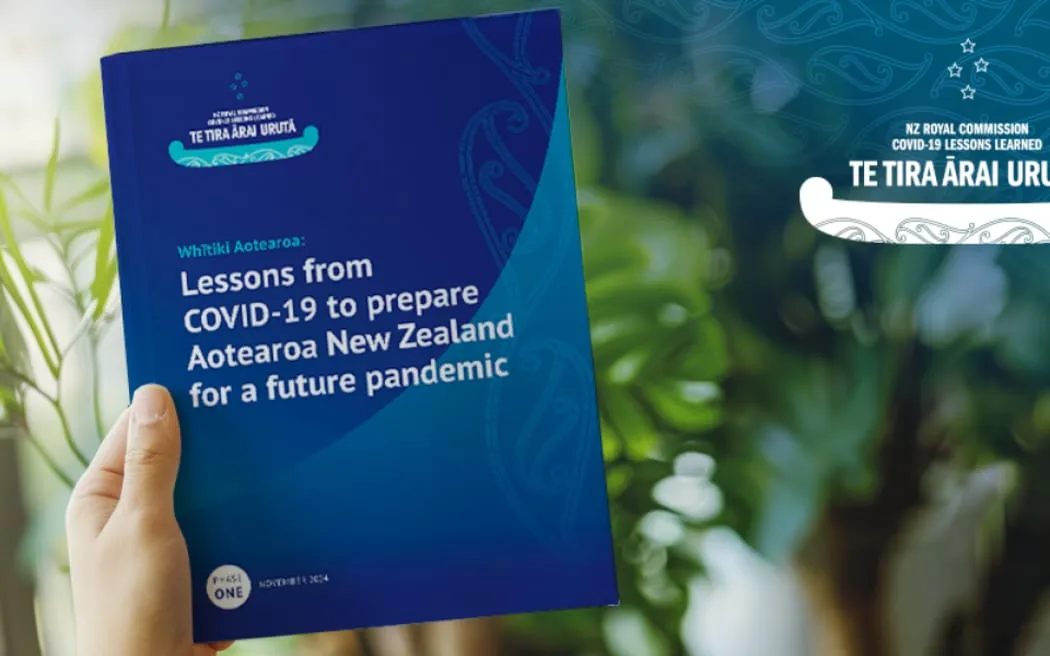The Royal Commission Report on New Zealand’s COVID-19 Response Has Been Released, Exposing Challenges and Opportunities for Future Preparedness
New Zealand has released the report of its Royal Commission on the COVID-19 response, providing an in-depth examination of the country’s handling of the pandemic. The report highlights both successes and challenges faced during the crisis, offering valuable lessons for future pandemics.
The report’s release was preceded by a statement from Prime Minister Christopher Luxon, who said that the government would take time to digest the findings. Labour Party leader Chris Hipkins described the report as an “incredibly challenging time” and acknowledged that decisions were made based on available information at the time.
Key Challenges in the Response
The report reveals several key challenges faced by New Zealand during its COVID-19 response, including:
* The rollout of the vaccine was problematic, falling short of delivering equitable outcomes for Pacific peoples.
* Lower vaccine coverage among Māori and Pacific communities was partly due to broader factors such as geographical barriers, lack of cultural alignment between providers and those receiving vaccines, and historical breaches of trust.
Opportunities for Future Preparedness
Despite the challenges faced during the COVID-19 response, the report also highlights several opportunities for future pandemics:
* Developing an all-of-government response structure that can be quickly stood up in a pandemic.
* Establishing processes and accountability mechanisms to protect democratic and human rights during a pandemic response.
Reactions from Experts
The rising threat of epidemics and pandemics adds urgency for the government to act on the recommendations. A group of health professors, including Professor Michael Baker and Dr. Collin Tukuitonga, stated that the report is an “excellent guide” to preparing for the next pandemic and called for a rapid government response, proactive leadership, and anticipatory decision-making.
Conclusion
The Royal Commission Report on New Zealand’s COVID-19 response provides valuable insights into the challenges faced during the crisis. By learning from these experiences, New Zealand can improve its preparedness for future pandemics and better protect its citizens.
Recommendations and Implications
* Developing an all-of-government response structure that can be quickly stood up in a pandemic.
* Establishing processes and accountability mechanisms to protect democratic and human rights during a pandemic response.
* Increasing investment in public health infrastructure, including contact tracing systems and vaccine storage facilities.
* Improving communication with affected communities, particularly those from diverse cultural backgrounds.
Implementation and Monitoring
To ensure the successful implementation of these recommendations, it is crucial to establish clear processes and mechanisms for monitoring progress. This may involve:
* Regular review meetings between government officials, public health experts, and community representatives.
* Development of standardized metrics for measuring progress toward recommended outcomes.
* Establishment of a dedicated task force or working group responsible for overseeing the implementation of these recommendations.
Future Research Directions
To further enhance New Zealand’s preparedness for future pandemics, researchers may explore:
* The role of social determinants in shaping pandemic responses and outcomes.
* The development of more effective communication strategies for engaging diverse communities during public health crises.
* The impact of historical breaches of trust on vaccine uptake and overall pandemic response.

0 Comments